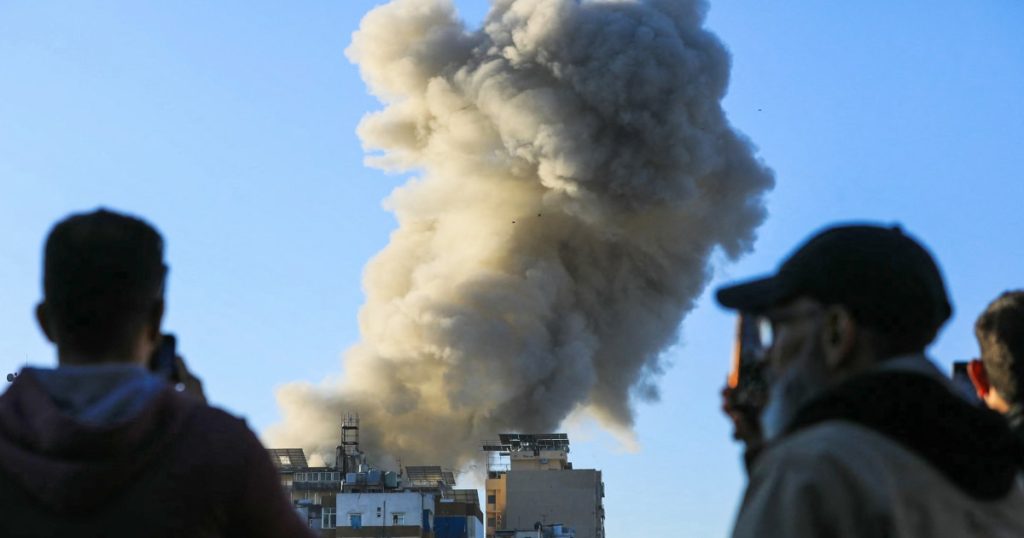Diplomatic efforts to secure a cease-fire in Lebanon showed some progress as Israel continued to bombard the country, targeting Hezbollah strongholds near Beirut. Despite ongoing airstrikes in Hezbollah-controlled areas of Beirut, there were signs of hope as the U.S. ambassador to Lebanon submitted a draft truce proposal to Lebanese officials. The proposal, which has 13 points that have been agreed upon, emphasizes the full implementation of U.N. Security Council Resolution 1701, which ended a previous war between Israel and Hezbollah in 2006. The proposal outlines steps to be taken within the first 60 days, including the withdrawal of Israeli forces from Lebanese territory and Hezbollah moving north of the Litani river.
In Israel, there was cautious optimism about reaching a cease-fire, with the country’s energy minister stating that prospects were the most promising since the conflict began. The Biden administration was making efforts to broker a peace deal before President-elect Donald Trump took office in January. Israeli Prime Minister Benjamin Netanyahu was reportedly eager to advance a Lebanon ceasefire to secure an early foreign policy win for Trump. Despite months of unsuccessful efforts to broker a deal between Israel and Hezbollah, there were signs of progress as Lebanese officials signaled that Hezbollah would pull its forces away from the Lebanese-Israeli border under a ceasefire agreement.
A key sticking point in the negotiations was Israel’s demand for the freedom to act if Hezbollah returned to border areas, which Lebanon rejected. Ensuring compliance with U.N. Resolution 1701, which requires Hezbollah to remove fighters and weapons from areas near the border, was a critical issue for both sides. The United Nations was prepared to bolster its peacekeeping mission in Lebanon to support the Lebanese army during a truce but would not directly enforce it. Lebanon expressed willingness to have U.S. or French participation in overseeing the ceasefire compliance.
The conflict in Lebanon had devastating human and economic costs, with a World Bank report estimating damages at $8.5 billion. The ongoing attacks had resulted in thousands of casualties in Lebanon since October 7, 2023, while Hezbollah attacks had killed about 100 civilians and soldiers in Israel over the past year. The situation was further complicated by Israel’s accusations of Hezbollah violations of Resolution 1701 and Lebanon’s complaints about Israeli airspace violations. Despite these challenges, hopes were high that a cease-fire agreement could be reached in the coming days, with critical talks scheduled to take place over the next 72 hours.
The diplomatic efforts were seen as crucial to ending the violence and preventing further escalation in the region. Both sides expressed a desire to reach a peaceful resolution that would allow for the withdrawal of Israeli forces from Lebanese territory and Hezbollah’s relocation away from the border. The involvement of the U.S. and other international powers in brokering the agreement was seen as essential to ensuring compliance and preventing future conflicts. As the negotiations continued, there was cautious optimism that a cease-fire could be reached, providing much-needed relief to the people of Lebanon and Israel who had suffered the consequences of the ongoing violence.


